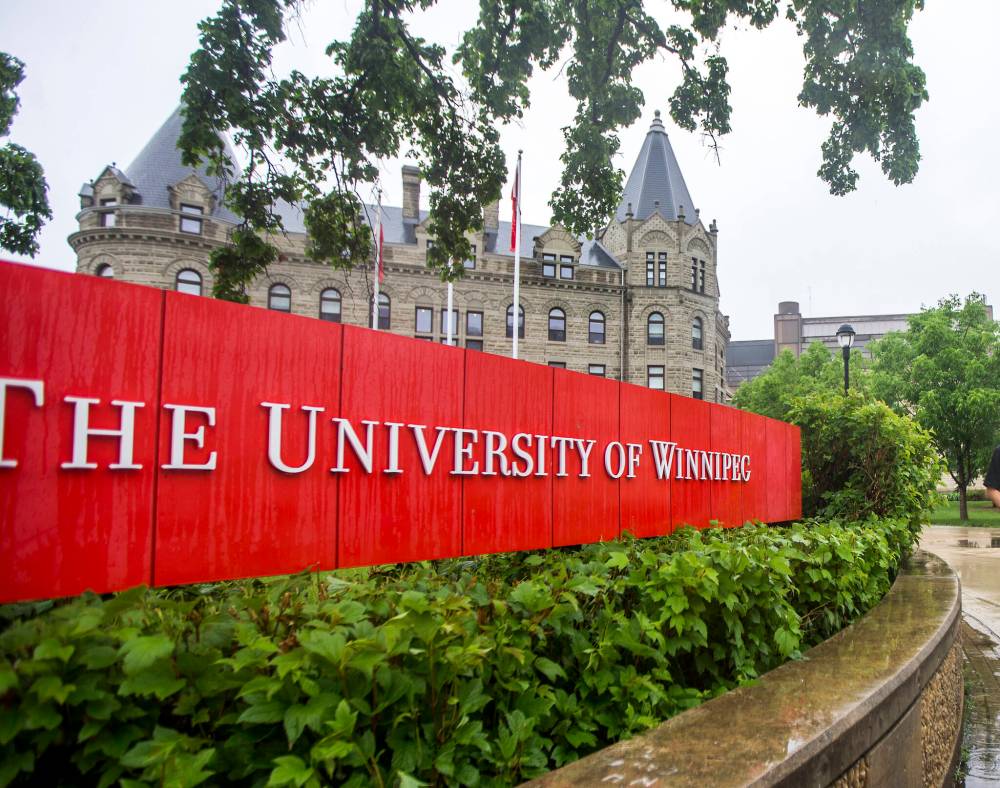U of W English language cutbacks condemned
Advertisement
Read this article for free:
or
Already have an account? Log in here »
To continue reading, please subscribe:
Monthly Digital Subscription
$0 for the first 4 weeks*
- Enjoy unlimited reading on winnipegfreepress.com
- Read the E-Edition, our digital replica newspaper
- Access News Break, our award-winning app
- Play interactive puzzles
*No charge for 4 weeks then price increases to the regular rate of $19.00 plus GST every four weeks. Offer available to new and qualified returning subscribers only. Cancel any time.
Monthly Digital Subscription
$4.75/week*
- Enjoy unlimited reading on winnipegfreepress.com
- Read the E-Edition, our digital replica newspaper
- Access News Break, our award-winning app
- Play interactive puzzles
*Billed as $19 plus GST every four weeks. Cancel any time.
To continue reading, please subscribe:
Add Free Press access to your Brandon Sun subscription for only an additional
$1 for the first 4 weeks*
*Your next subscription payment will increase by $1.00 and you will be charged $16.99 plus GST for four weeks. After four weeks, your payment will increase to $23.99 plus GST every four weeks.
Read unlimited articles for free today:
or
Already have an account? Log in here »
Hey there, time traveller!
This article was published 23/04/2025 (218 days ago), so information in it may no longer be current.
Supporters of study-abroad language programs are warning that cutbacks at the University of Winnipeg and related closures on other campuses across the country will have wide ranging consequences.
Languages Canada, an organization that represents post-secondary institutions with language programs, said this week it has lost 16 members since the start of the year. Those include a mix of public and private schools that run English and French courses targeted at immigrants.
“This is a country of immigrants and what unites immigrants coming here is our shared language. Canada cannot sustain, never mind grow, without an effective official languages education sector. It is an impossibility,” said Gonzalo Peralta, executive director of the industry association.

MIKAELA MACKENZIE / FREE PRESS FILES
Cutbacks at the University of Winnipeg forced it to discontinue it’s 14-week English program, the last of which ran from Jan. 6 to April 17.
Peralta said he’s “extremely concerned” about losing 10 per cent of his organization’s membership in one quarter and Manitobans should be, too.
Participants in these programs not only power local economies by paying tuition — they also frequent coffee shops and their homestay fees help families make mortgage payments, he said.
U of W charged $5,500 for its 14-week English programs, the last of which ran from Jan. 6 to April 17.
The post-secondary institute was an affiliate of Languages Canada before administrators announced in January they were putting an end to the courses due to budgetary challenges.
For nearly 60 years, U of W’s English language program was available to students wanting to improve their oral and written language skills and attracted temporary visitors from across the globe. It will cease to exist by the summer.
U of W president Todd Mondor said in a news release enrolment “dropped dramatically” because of recent changes to federal policies affecting international student mobility.
Program reports show there was an average of 215 registrants annually during the three school years leading up to the COVID-19 pandemic.
Enrolment plummeted amid travel restrictions, but the average nearly tripled to 632 in 2022-23. Last year, there were 507 students.
The final figures for the current academic year were unavailable Wednesday. Mondor said in September enrolment among new non-Canadian students had dropped 50 per cent for the fall term.
Post-secondary leaders on the downtown campus and elsewhere have raised concerns about the fallout of new federal caps on international students and related policies since Ottawa announced them in early 2024.
Immigration, Refugee and Citizenship Canada’s stated goal is to stabilize immigration levels and target “bad actors” who are overcharging international students for shoddy programs.
Peralta and his colleagues take issue with the claims that international students are putting a severe strain on affordable housing stock and social services.
Language program students, only 30 per cent of whom arrive with the intention of continuing their education locally and staying in Canada on a long-term basis, create jobs and vibrant communities, he said Wednesday.
Last year, the top countries of origin for international student registrants across the Canadian Prairies were Japan, China, South Korea, Brazil, Colombia and Mexico, per Languages Canada.
Manitoba-based Heartland International English School, Winnipeg Global Education College, Robertson College and St. Boniface University continue to accept applicants from these nations and elsewhere.
The industry association’s calculations suggest its members, including the four remaining local ones, contributed a combined $335 million to Manitoba, Saskatchewan and Alberta’s economies last year.
That’s down from $563 million in 2019, per an analysis its leadership team said was done by a senior economist who drew on data from Statistics Canada.
maggie.macintosh@freepress.mb.ca

Maggie Macintosh
Education reporter
Maggie Macintosh reports on education for the Free Press. Originally from Hamilton, Ont., she first reported for the Free Press in 2017. Read more about Maggie.
Funding for the Free Press education reporter comes from the Government of Canada through the Local Journalism Initiative.
Every piece of reporting Maggie produces is reviewed by an editing team before it is posted online or published in print — part of the Free Press‘s tradition, since 1872, of producing reliable independent journalism. Read more about Free Press’s history and mandate, and learn how our newsroom operates.
Our newsroom depends on a growing audience of readers to power our journalism. If you are not a paid reader, please consider becoming a subscriber.
Our newsroom depends on its audience of readers to power our journalism. Thank you for your support.




